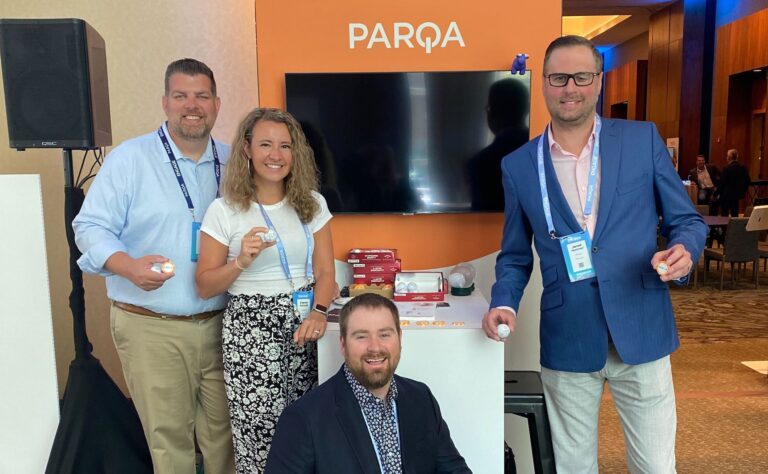The competition for talent remains fierce and the recruitment battlefield is as intense as ever. But one thing is abundantly clear: Workplace culture isn’t just a concept or a box to check—it’s either the healthy beating heart of your company’s success, or the steady drumbeat of its slow demise.
Culture is more than just a nice story recruiters tell to lure top talent. The truth is that culture is just as important to attracting top talent as it is to keeping it. And you can bet that the top 20% of candidates you really want to hire and retain are savvy enough to know the difference between a culture that’s nothing more than a hollow narrative, and one that’s a lived commitment to treating people with respect, compassion, and appreciation.
Consider these proof points:
- 77% of people consider a company’s culture before applying for a job.
- Remarkably, more than half value a good workplace even more than pay.
- Almost three-quarters wouldn’t even bother applying to a company if its values didn’t align with their own.
- Toxic workplaces were the #1 reason for high turnover rates across various industries.
- A staggering 65% of Gen Z workers said they’re likely to resign in less than a year, and more than twice as likely to consider quitting within the next month.
At PARQA, our mission is driven by the belief that a strong company culture isn’t just a nice-to-have—it’s a strategic imperative.

Jared Hummel
Here, we’ll take a look at the definition and foundation of company culture, the undeniable links between culture, recruitment and retention, the PARQA POV on the power of a positive workplace culture, and the importance of gathering feedback, implementing meaningful change, and measuring the impact of it all.
(And, we’ll even give you a look at the fun we had as a team at the Minnesota State Fair this August! Members from Team PARQA traveled from wide and far for this signature Minnesotan experience. IYKYK).
Defining Culture
Culture is the foundation on which organizations build their identity, values, and vision. It comprises the shared beliefs, values, behaviors, and attitudes that shape the identity and character of an organization. Culture can’t be manufactured or superficially imposed. Instead, it’s an energy that emerges organically as a direct result of the collective actions and interactions of everyone at the company.
David Steele
It’s Like Your Company’s Personality
Imagine company culture as the compass that guides every decision, interaction, and strategy within your organization. It sets the tone for the workplace environment and influences how employees engage with their tasks, colleagues, and clients. A strong and well-defined culture not only shapes the present, but also serves as a North Star for the future.
Jared Hummel
Ask yourself: If you think of your company as a person, what are they like? Are they distant and cold, or warm and welcoming? Are they serious or fun? Formal or relaxed?
Now, go deeper: When your company has two choices, does it go the easier but more profitable route? Or does it make the best move for the greatest benefit of the majority—even when it’s not the easiest or most lucrative? In its pursuit of growth, profitably and success, how does your company treat people? How does it give back to the community? How does it minimize its impact on the environment?
All of this is culture. It’s also commonly known as corporate social responsibility (CSR), but it certainly defines the “personality” of your company. It communicates integrity (or lack thereof) and signals to employees and candidates and consumers that they can trust and engage with your company and your brand.
So, if you make sure your company’s personality is like someone you and a few of your high-performing pals would want to hang out with, you’ll be heading in the right direction.
Julie Haldorson

The Link Between Culture and Recruitment
It’s crucial to understand that prospective candidates are no longer just looking for a job. They’re seeking an experience—a cultural fit that resonates with their values and aspirations.
Culture as a Talent Magnet
At PARQA, we’ve seen firsthand how a well-defined and vibrant culture becomes a powerful magnet for top talent. In the competitive realm of staffing and recruiting, where every candidate is a potential gem, our commitment to fostering an engaging and inclusive culture isn’t just a virtue—it’s a strategic edge.
The Culture-First Perspective
In today’s job market, candidates are no longer content with evaluating opportunities solely based on salary or job title. They’re scrutinizing the workplace environment, values, and mission of potential employers.
So, especially for those firms that can’t win top talent based on salary alone, culture becomes a key offering with real value. For most people who are aware of their marketability and employability, there’s no amount of money that makes staying in a bad culture worth it in the long run (or the short run, for that matter).
Embracing a culture-first perspective reflects the understanding that attracting the best talent requires more than just attractive compensation packages. It demands an environment where individuals can thrive, contribute, feel safe, have fun, build relationships, and find a fit with their personal and professional values.
Isn’t that something? Today, the prospective employee’s assessment of whether a company is the right “fit” for them is frankly more important than the inverse. What a time to be in the workforce! And what fun it is to see companies rise to the occasion and put culture where it belongs: at the center, always.
Retaining Talent Through a Vibrant Culture
It’s no secret that employee turnover can seriously sabotage productivity and profitability. The connection between culture and employee retention is a powerful one, and it’s backed by compelling data.
The Impact of Engaged Employees
Engagement is at the heart of employee retention. When individuals feel connected, motivated, and fulfilled in their roles, their commitment to their company, its mission, and its business goals is more likely to last.
Research shows that disengaged employees are 3.8 times more likely than their engaged counterparts to leave their company in search of a better culture.
This statistic underlines a stark reality: When employees feel disconnected from the workplace culture, they become more inclined to seek an upgrade.
At PARQA, we recognize that a vibrant culture isn’t just about attracting talent—it’s also about keeping that talent engaged, satisfied, and dedicated to our shared mission. We understand that engagement isn’t a one-time achievement—it’s an ongoing journey that requires constant nurturing and investment.
And please note, culture is about so much more than perks and freebies. You can’t Pizza Party or Casual Friday your way to a truly amazing culture that magnetizes high performers.
It’s about fostering a brave space for everyone to show up fully, and a sense of belonging and purpose.
It’s about creating opportunities for connection, fun, growth, professional development, and community involvement.
And it’s about being everything you say you are, and doing everything you say you’ll do.
So, take pride in your culture-building initiatives. We’ve seen firsthand how investing in our employees’ wellbeing and professional growth contributes to their satisfaction and loyalty. Our commitment to flexibility and employee happiness (did someone say unlimited PTO?) isn’t just about being a great place to work—it’s about ensuring our team members are equipped, supported, invested in, and excited about the bold journey we’re on together.

Measuring the Impact of Becoming One Team
Creating a strong and healthy company culture is the right thing to do in itself, but it’s always a smart idea to quantify its impact on recruiting and retention.
Gauging Culture Effectiveness
Measuring the impact of your company’s culture initiatives starts with understanding the outcomes you aim to achieve.
Are you:
- Looking to attract top talent, retain existing employees, or both?
- Do you need to make your company more welcoming to people from a wider variety of backgrounds, geographies, etc.?
- Could you make the experience of working at your company more accommodating to parents, more accessible to Disabled folks, or more harmonious across teams with competing priorities?
Identifying your specific objectives allows you to tailor your measurement approach accordingly.
Key Performance Indicators (KPIs) for Culture Evaluation
- Employee Satisfaction Surveys: Regularly conducting surveys to gauge employee satisfaction is a fundamental approach. By asking employees about their experience with the company culture, you can identify areas of strength and areas that may need improvement. Pro-tip: Anonymity often yields more candid and actionable feedback—especially if your culture isn’t quite living its best life just yet.
- Retention Rates: Monitor your organization’s retention rates over time. A high retention rate indicates that your culture is effectively keeping employees engaged and committed.
- Recruitment Metrics: Assess the success of your culture in attracting talent by tracking metrics like the time to fill roles, the number of qualified applicants, and the rate that job offers are accepted.
- Employee Engagement Scores: Employee engagement scores can provide insights into how connected and motivated your workforce is. High engagement scores are often indicative of a positive culture.
- Exit Interviews: When employees leave, conduct exit interviews to gather feedback on their reasons for departing. This data can help pinpoint culture-related issues that need your attention.
- Stay Interviews: Even better than the exit interview is the “stay interview,” in which you have an open conversation with an employee you’d like to retain about the elements of culture that are working for them, and the ones they’d like to see improve—all relative to the potential influence on how long they stay with your company.
Your highly engaged top performers are a wealth of intel when it comes to how well your company culture is doing today, and where the focus should be for tomorrow. So, talk to them now before they’re even seriously considering making a move so that you can demonstrate how much you value their feedback and implement meaningful improvements consistently. (Remember: Healthy workplace culture is a forever journey—not an end point).
Leveraging Feedback and Data
All of that said, we’d be remiss if we failed to mention the all-too-common pitfall of collecting the data and then not doing anything good with it, or not doing so with the appropriate degree of urgency for your company and culture.
These foibles send the message that your leadership is merely performing culture rather than truly investing in a companywide vibe that people can feel, connect to, and be proud of.
Again, collecting employee feedback is just the first step—the real value comes from analyzing this information and using it to drive improvements. So, make sure you have a plan and are ready to execute it before your survey goes out.
Here are some more best practices to consider:
- Regularly review your culture-related data to identify trends and patterns. Are there recurring themes in employee feedback or areas where retention rates are consistently low?
- Establish feedback mechanisms that encourage open and honest communication. This can include regular one-on-one meetings, a dedicated inbox for culture feedback, or anonymous surveys.
- Use the insights gained from your data to make informed decisions about culture-related initiatives. If a particular aspect of your culture doesn’t resonate with employees, take action to address it.
- Be willing to adapt and iterate on your culture initiatives based on feedback and changing circumstances.

Flip Your Culture Inside Out for an Employer Brand That Shines
If you’re ready to take your culture to the next level with an employer brand that reflects what’s real and wonderful about working at your company, PARQA is the place.
Our team of experts specialize in digital marketing for staffing and recruiting, and we’re passionate about helping firms like yours thrive in the competitive market.
Whether you need guidance in developing automated messaging strategies that engage and inform candidates at scale, or help capturing, analyzing, and leveraging richer data on the candidates already in your database, Team PARQA is your dedicated staffing industry performance marketing and digital transformation partner.







